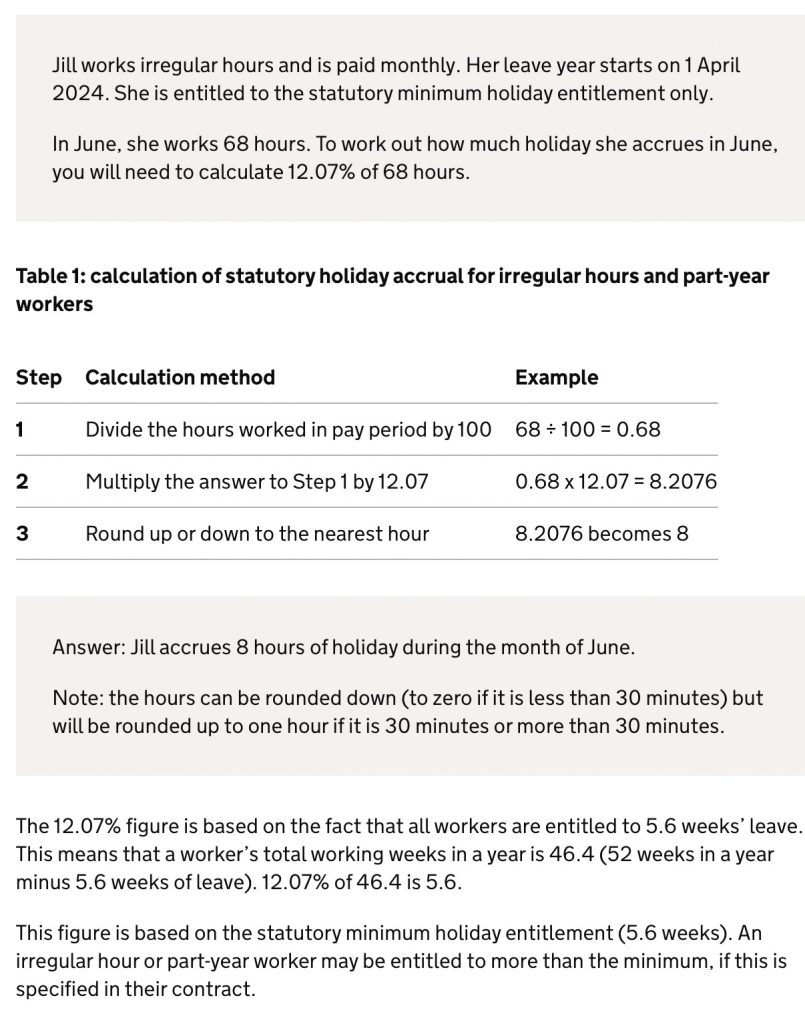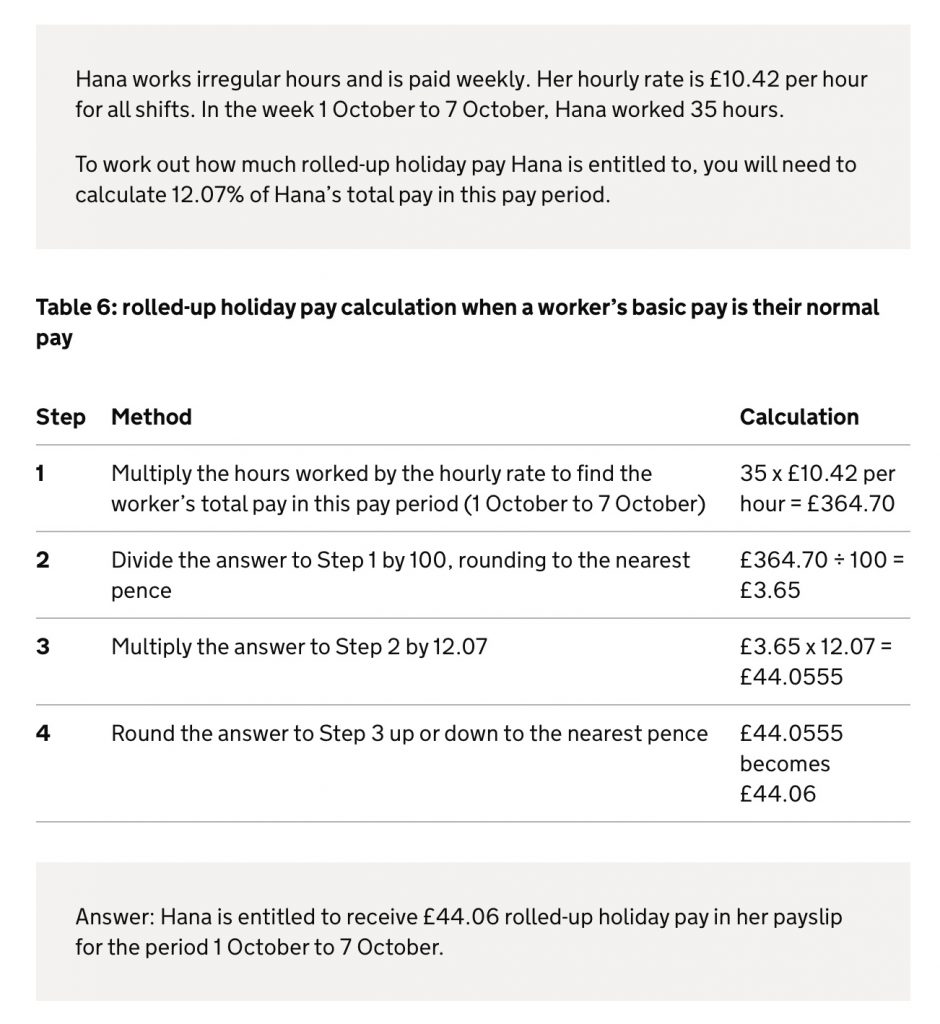Estimated reading time: 5 minutes
The Government has issued new guidance allowing the return of the 12.07% “rolled up” method for calculating holiday pay for irregular hours and part year workers. Following the introduction of the nattily titled Employment Rights (Amendment, Revocation and Transitional Provision) Regulations 2023 in January this year, employers can use rolled-up holiday pay as an additional method for calculating holiday pay for leave years beginning on or after 1 April 2024.
The new regulations define irregular hours workers and part year workers like this:
An irregular hours worker – typically found in the hospitality industry- is classed as such if the number of paid hours they work is wholly or mostly variable.
They include zero hours contract workers, freelancers and gig economy workers, working on a project basis, with work hours that vary depending on demand and causal workers in hospitality, event management or retail where work demands fluctuate seasonally or weekly.
A part year worker, essentially, is a worker who does not work a full calendar year, either due to the seasonal nature of their job, contractual terms etc and who is only paid when they are working.
For example, a teaching assistant who only works during term time and who is only paid when working. If that teaching assistant is instead paid an annualised (flat) salary throughout the year, has weeks when they are not working (school holidays) but is paid for these non working weeks, they wouldn’t be classed as a part year worker.
The Government’s new 2024 ‘rolled up’ holiday pay guidance
- includes examples of how statutory holiday entitlement is accrued for irregular hours and part-year workers in different working scenarios, including how to calculate holiday entitlement for those on maternity leave or off sick, and
- examples of worked holiday pay calculations using the 12.07% “rolled up holiday pay” method.
What is rolled up holiday pay?
Rolled up holiday pay allows employers to include an additional amount with every payslip to cover a workers’ holiday pay, as opposed to paying holiday pay when a worker takes annual leave. The holiday pay is calculated at 12.07% of the total qualifying pay for that period.
For example, a bartender working irregular hours and receiving the National Living Wage of £11.44 per hour (as of 1 April 2024) would be paid an extra £1.38 in rolled up holiday pay for every hour he or she worked in that pay period.
And from 1 January 2024, the bartender’s qualifying pay must include commission payments, and any overtime payments which have been paid regularly to them in the 52 weeks preceeding the holiday pay calculation date.
Note that workers with regular hours and fixed pay are not allowed to be paid using the rolled up holiday pay method. There is no change to how their statutory holiday entitlement is accrued. For regular hours workers, (and for irregular hours and part-year workers whose leave years begin before 1 April 2024) use the holiday entitlement calculator.
The new guidance does not mention agency workers whose periods of work are often irregular, so take care when deciding how to pay these workers holiday, and refer to the guidance.
The guidance is very detailed, includes lots of examples and numerous different scenarios and is somewhat tricky to follow. We’ve pulled out the two main calculations you’ll need below. But there are more examples, so check them out.
Example of how statutory holiday entitlement is accrued for irregular and part year workers
Employers using rolled-up holiday pay should calculate it based on a worker’s total pay in a pay period. A pay period is the frequency at which workers get paid, that is weekly, fortnightly, monthly, and the like.

Rolled up holiday pay Example: holiday entitlement when paid weekly

Preparing for the new holiday pay regulations
- Firstly, work out if you currently employ any irregular hours or part year workers, as defined above. If you have and you intend to start using (or re introducing) rolled-up holiday pay for them, you’ll need to update any Annual Leave Policy in place to reflect the changes. Remember qualifying pay for holiday will include commission payments, and any overtime payments which have been paid regularly to the worker in the 52 weeks preceeding the holiday pay calculation date.
- If you intend to start using rolled-up holiday pay for irregular and part time workers, check these workers’ employment contracts in case this amounts to a variation of contract.
Inform these workers of your intention to start using rolled-up holiday pay and ensure that this payment is clearly marked as a separate item on each payslip. The holiday pay should be paid at the same time as the worker is paid for the work done in each pay period. - Ensure calculations for rolled up holiday pay are accurate. Otherwise workers may receive too little pay depending on the number of hours they have worked, leading to a potential claim against the business for unlawful deduction of wages.
There has been a pressing need for clarity on this ever since the Supreme Court ruling in Harpur v Brazel in 2022 that employers could not use the 12.07% method to calculate holiday pay, a decision which caused considerable confusion for employers and workers alike and huge headaches for payroll administrators.
Fortunately, the rolled up holiday pay method is once again lawful from 1st April 2024. It can get complicated, so do get in touch if you need advice or clarification.






